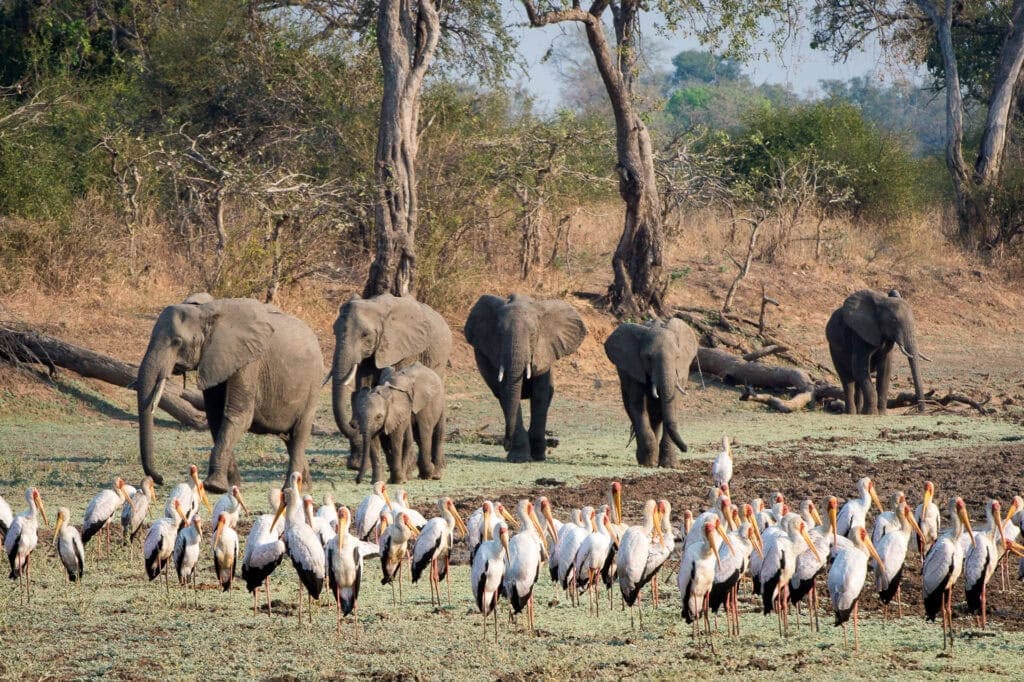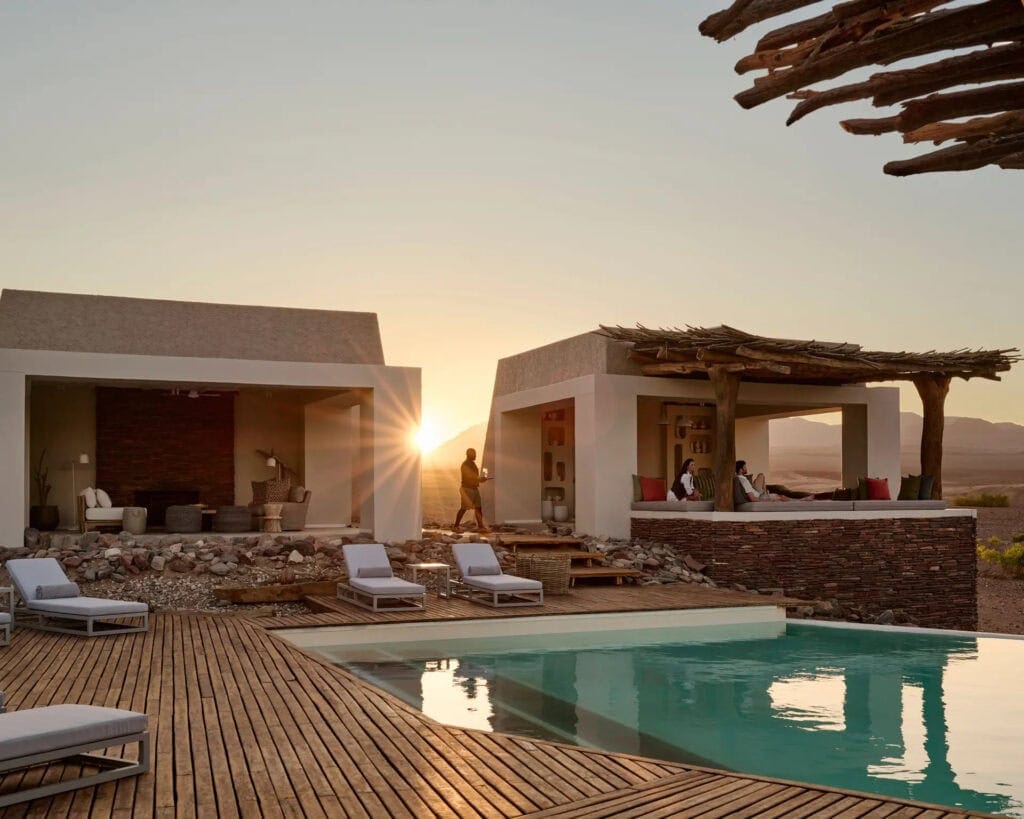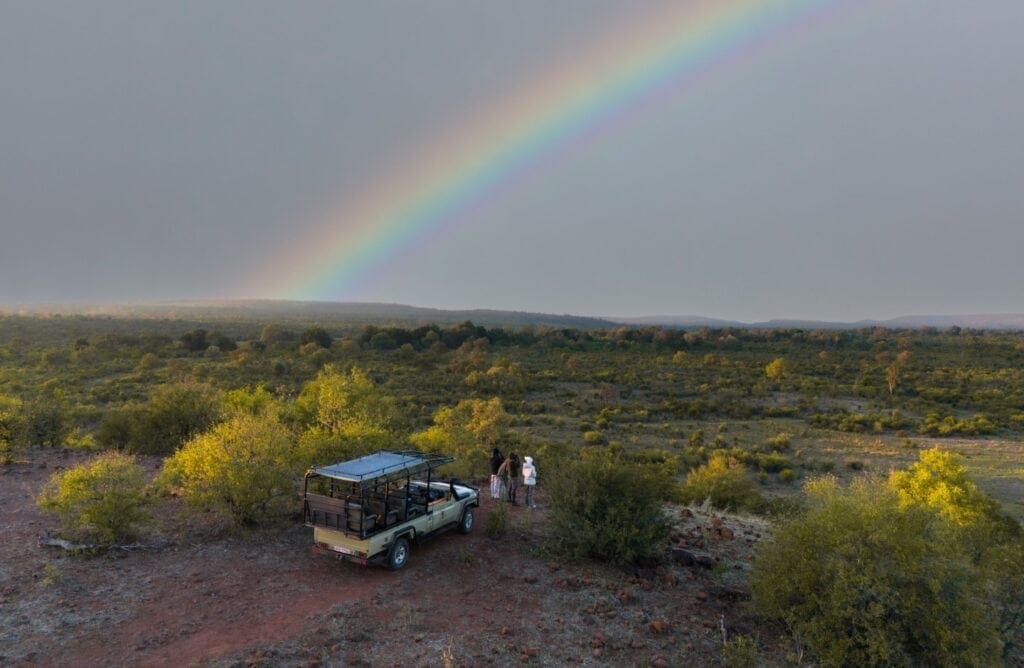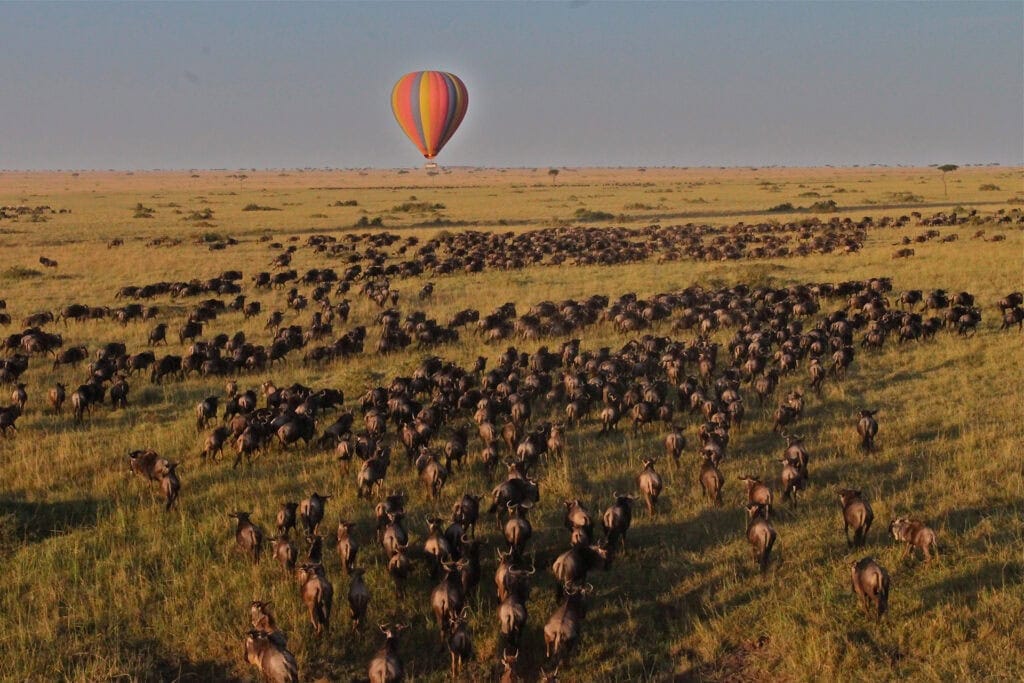“So many people think that going on safari in Africa is like going to a zoo.” Barry Greenshields, a Discover Africa safari planner, spent many years as a field guide across the continent and he has heard a lot of misconceptions from first-time safari travellers. One of the biggest African safari myths is that game reserves are like giant zoos.
“I’ve been a guide for people who had the impression that we [the guides] always knew where the animals were!” This is so far from the truth – game reserves are wild habitats where animals are allowed to roam freely. There are no guarantees of sightings!
There are many other misconceptions surrounding the continent and safari travel. From the thought that Africa is just one big, hot jungle to the belief that an African holiday means the absence of luxury, there are many myths about safaris in Africa that are holding travellers back from the adventure of a lifetime.
Let’s bust five more myths:
Myth One: Safaris are Only for the Big Five

For many first-time safari-goers, the number one attraction of going on safari in Africa is seeing the Big Five. Lions, leopards, elephants, rhinos, and buffaloes are awe-inspiring sightings. And while a Big Five safari is a life-changing experience, these aren’t the only animals that Africa has to offer. Sometimes it’s the smaller inhabitants of national parks that capture your heart.
Safari planner Cayleigh Brown explains that so many of her clients come back from Africa as birdwatchers. “A big part of a safari in Africa is spotting the incredible bird life. A lot of my clients return with a newfound appreciation for birds.”
Birdwatching safaris can take you across diverse environments – from the Zambezi River to see waterbirds to the forest species of Uganda – for a truly immersive experience in nature.
Myth Two: Going on Safaris Means You Have to “Rough It”

When you think about going on safari, do thoughts of bucket showers, dirt floors, and warming up rations on an open flame keep you from taking the next step?
If so, I have some good news for you: luxury travel is a huge part of the safari market. From private plunge pools overlooking the wilderness and gourmet meals to spa treatments and even WiFi, there are lodges that take care of every comfort.
The location of a safari lodge in Africa truly elevates it. Amalinda Lodge in Zimbabwe has made its home in the rocks of Matobo Hills, a once ancient Bushmen shelter. In Tanzania, Asilia Africa’s The Highlands is made up of unique canvas and perspex domes that overlook the expansive and mesmerising wilderness of the Ngorongoro Crater.
Luxury, unique accommodations are the perfect accompaniment to the spectacular natural surroundings.
Myth Three: Safaris Aren’t Safe

Probably the most common myth that discourages people from going on an African safari is the belief that it’s unsafe. In reality, safety is of paramount importance.
Many African governments take travel and tourism in their countries extremely seriously and want to encourage more people to come on safari. So, a lot of effort has been put into ensuring that national parks and reserves are safe destinations.
Lodges and the travel companies working in national parks and game reserves also do their best to keep all guests safe during every excursion into the wilderness. Whether it be game drives, canoe safaris, or walking safaris, you’ll be with a trained and professional guide who knows the land.
When you go on a safari tour, you’ll be given a list of instructions to follow by your guide and the managers at lodges. For instance, you may be told not to stand up in safari vehicles. This is mostly in southern African destinations, as many of the safari vehicles are open-sided. Barry explains that animals can go into fight or flight mode when seeing people standing up. In East Africa, most safari vehicles are closed around the sides, so some guides will encourage you to stand up to get the perfect photo.
Myth Four: It’s Always Hot in Africa

Picturing Africa – for a lot of people – involves scenes of arid landscapes and sweltering jungles. Places where the sun’s heat overwhelms everything. While this may be the case in some places during certain parts of the year, it’s certainly not consistent.
First of all, it’s important to get an idea of just how big Africa is: the continent is three times bigger than the whole of the United States. Africa is a massive landmass home to a variety of climates, environments, and seasons.
December in Cape Town rings in summer with clear, sunny days – fantastic beach weather. Just a short flight to Botswana will bring you into a completely different environment, with rainfall and lush greenery. At the same time in Uganda, the last month of the year sees a break in heavy rainfall, clearing up trekking routes for those eager to see mountain gorillas.
In the middle of the year, when the northern hemisphere enjoys the summer season, southern Africa is experiencing winter, which is the perfect time to go on safari. The dry winter months in reserves and parks – such as the incredible Hwange National Park in Zimbabwe – are characterised by daytime temperatures around 26°C/79°F, clear skies, and virtually no rainfall. The dry conditions and lack of rainfall make wildlife easier to spot.
Myth Five: Safaris are Only About Game Drives

Game drives are certainly a fantastic way to explore the African wilderness, but there are so many other activities to do during safaris such as:
Walking Safaris
Walking safaris or bush walks can bring you closer to the smaller inhabitants of the wilderness. This is an immersive experience – the sights, smells, and sounds will entice all of your senses. Some reserves and lodges also offer unique walking experiences, such as tracking rhinos on foot or spending time with nomadic and seminomadic tribes.
Boat Safaris
The vast waterways of Africa attract an array of wildlife to their banks, including giant herds of elephants, a variety of waterbirds and waders, and predators of the savannah. Rivers are the lifeblood of the land, and you can travel down some of them!
Whether on a sunset boat cruise along the Zambezi River or a mokoro (traditional canoe) safari in the labyrinth of waterways in the Okavango, exploring the wilderness in this way will give you a whole new perspective of the dynamic bush.
Hot Air Balloon Safaris
Imagine gliding over the savannah virtually silently, watching massive herds of wildebeest and zebras below you, taking in the glory that is a sunrise in Africa. You gently touch down and are welcomed back on land with a champagne breakfast. A hot air balloon safari will take your African holiday to a whole new level of luxury.
Photographic Safaris
Are you a shutterbug that adores capturing images of nature and wildlife? If so, you may want to consider a photographic safari. This type of experience caters specifically to the needs of photographers, which looks like more time at sightings and positioning safari vehicles in just the right spot for the perfect shot.
There are many myths that permeate the African safari industry. A little bit of research will bring to light the truth: that Africa is a diverse continent full of adventures, including safe and luxurious experiences.
Author: Brendan White
Published: 20 March 2025
Last Update: 20 March 2025